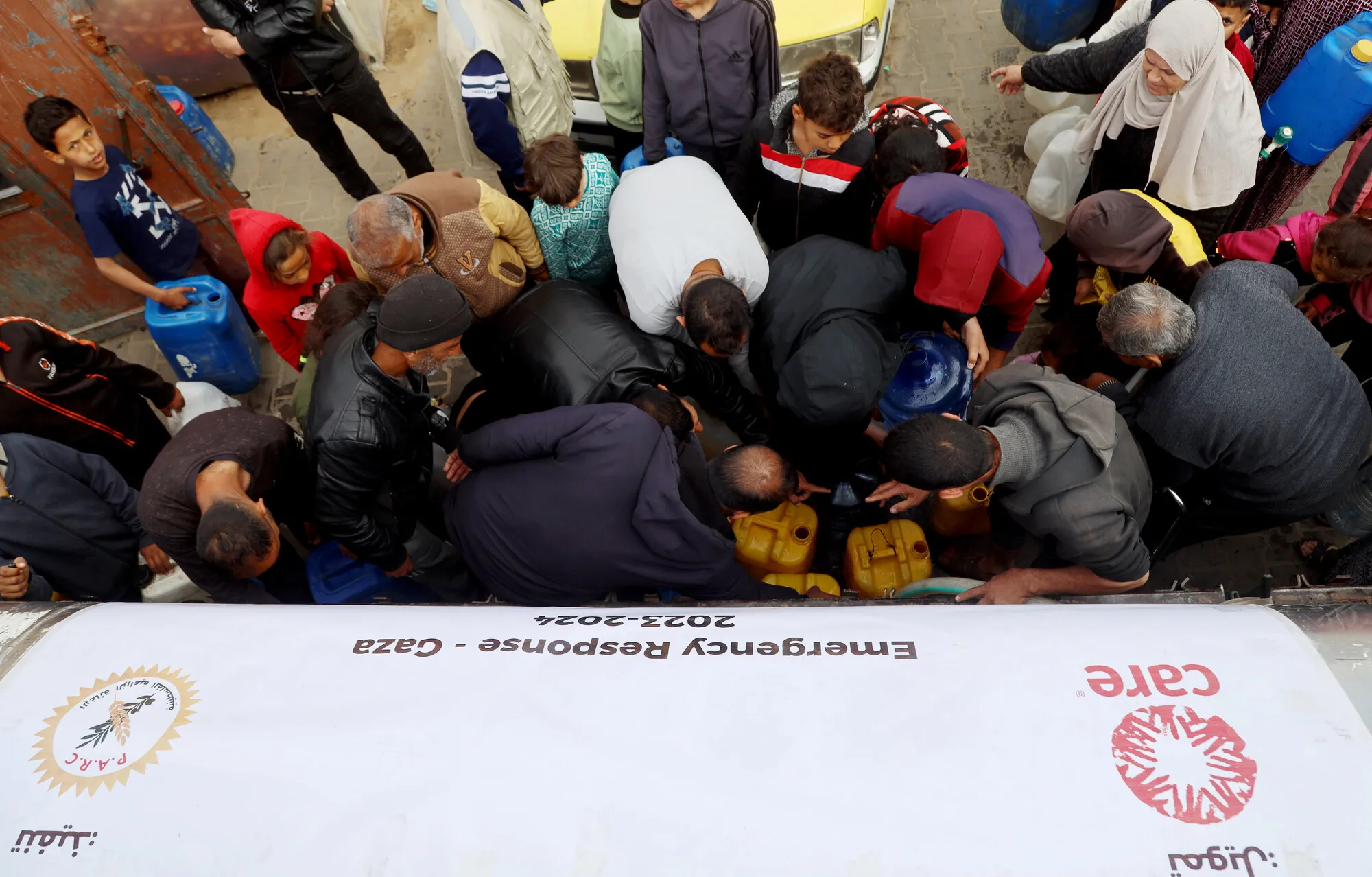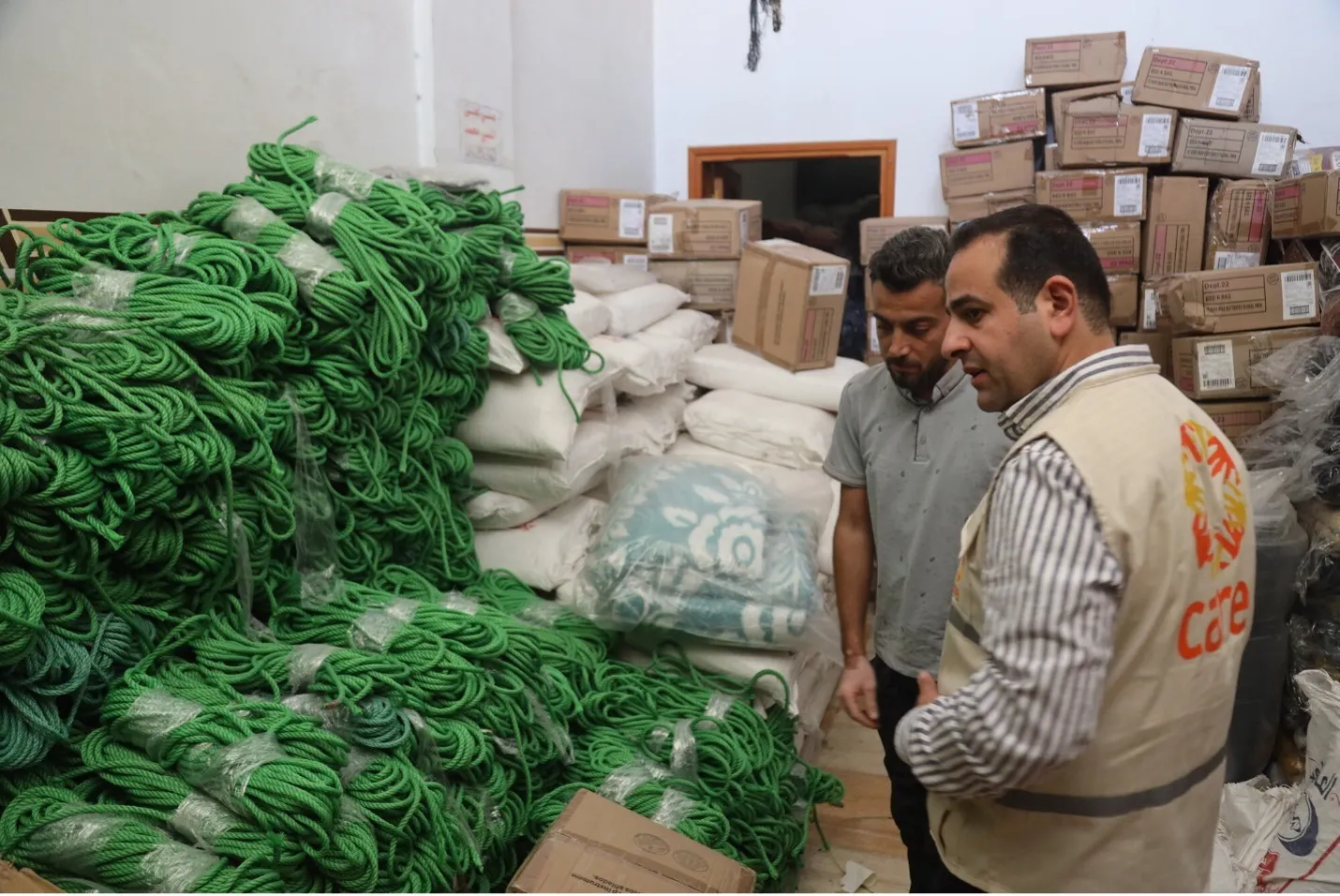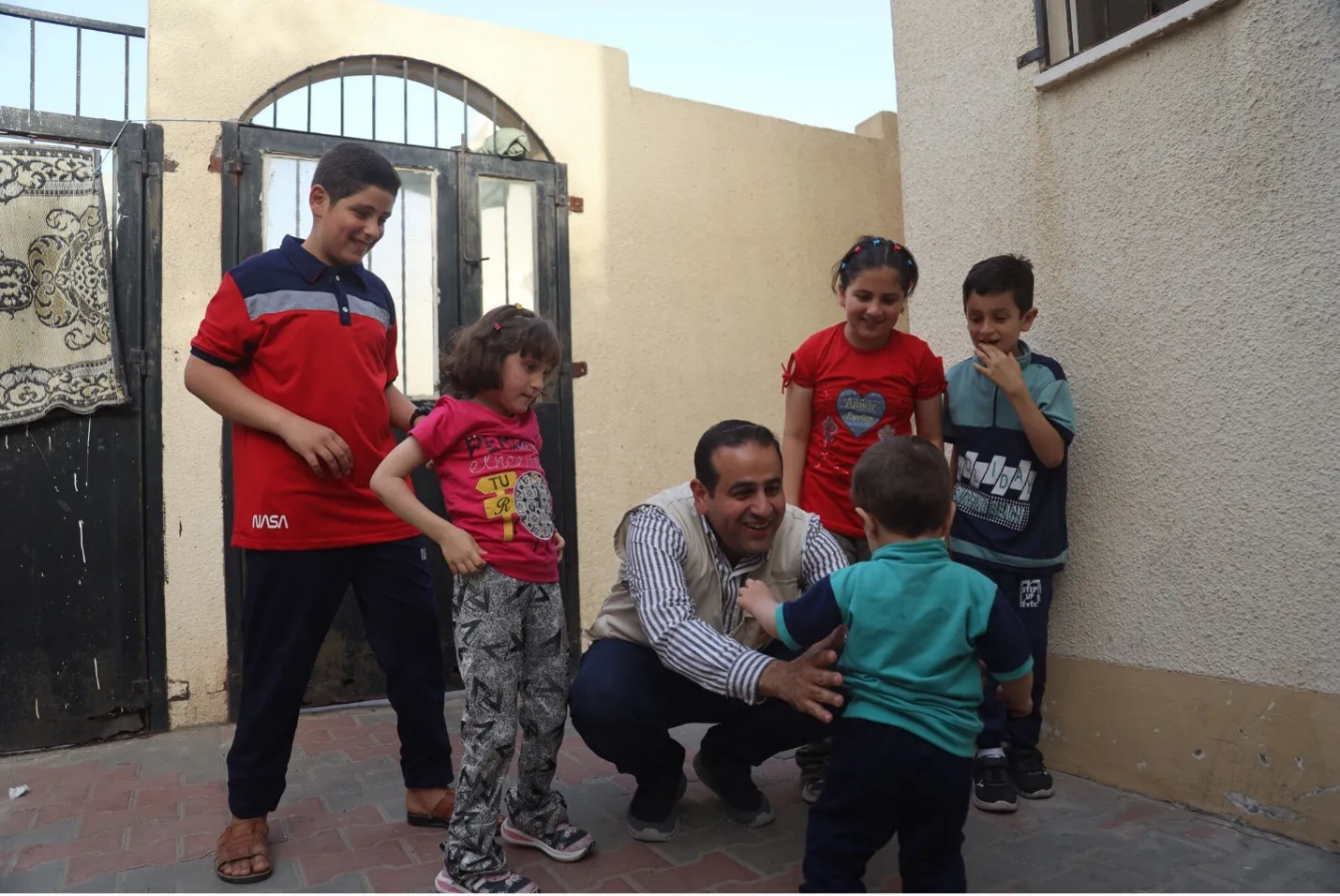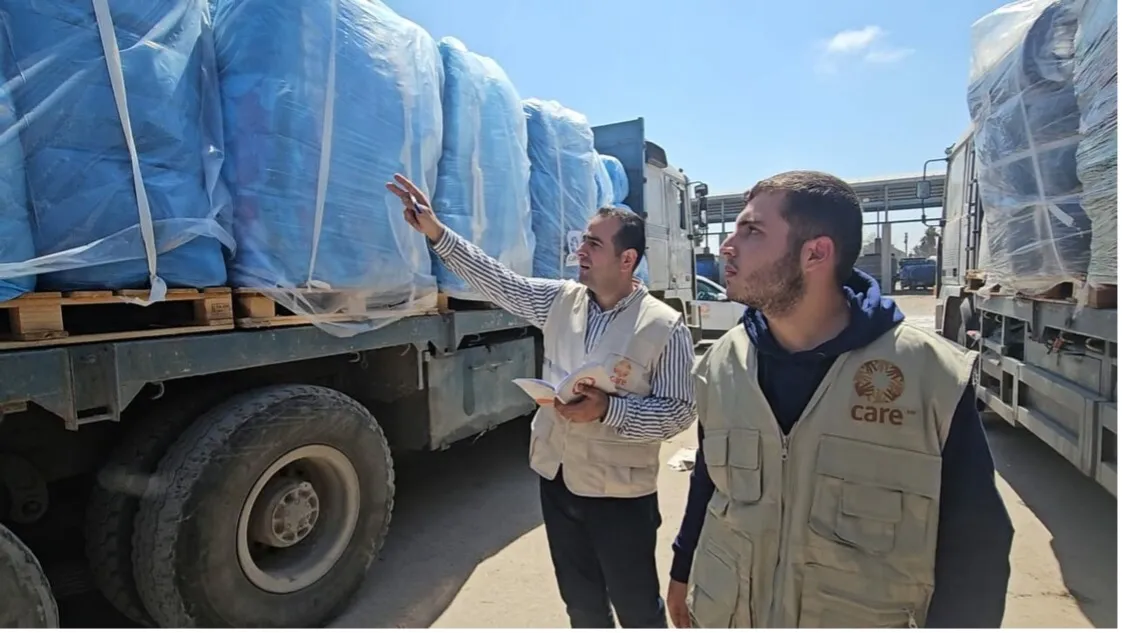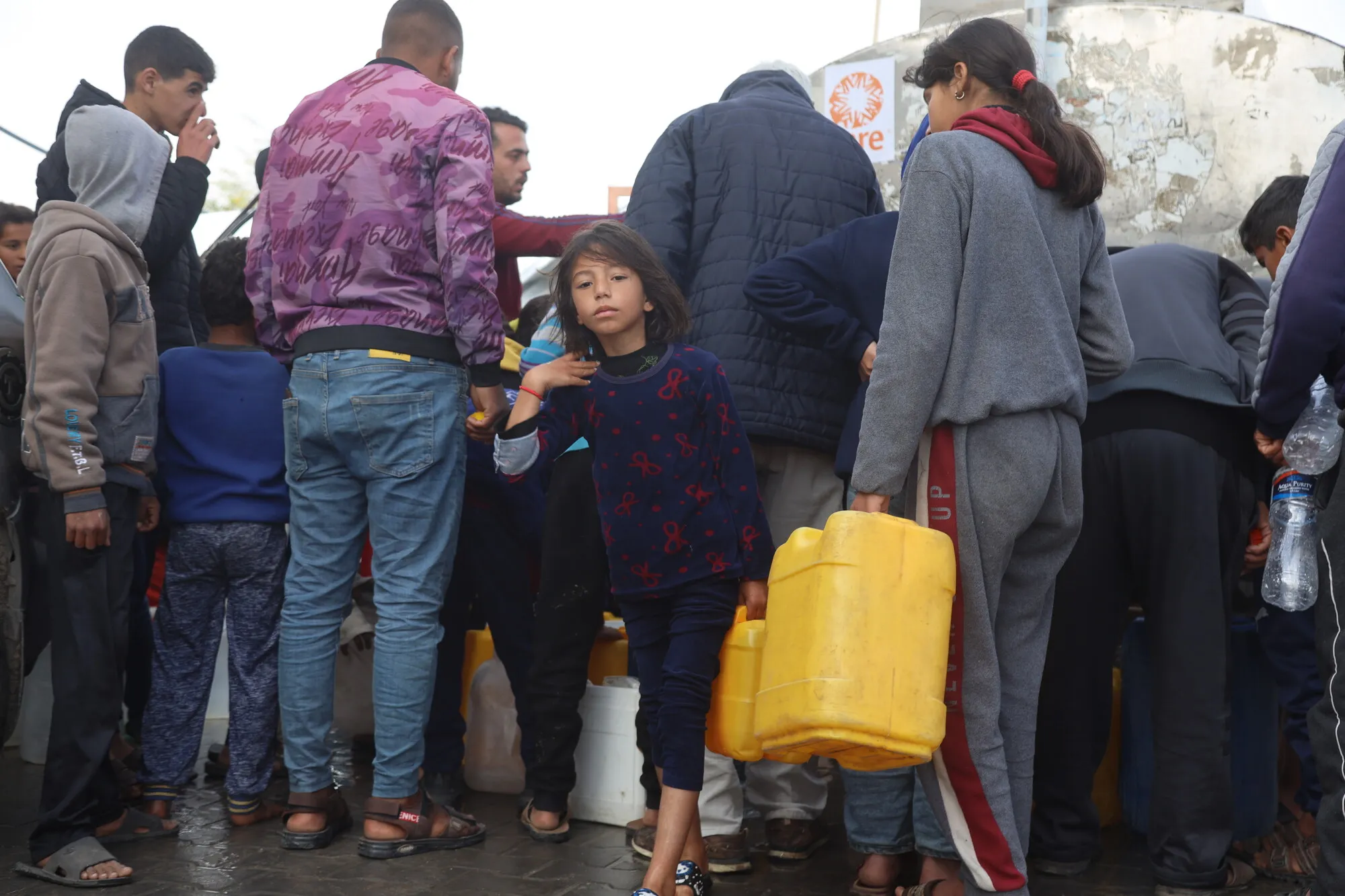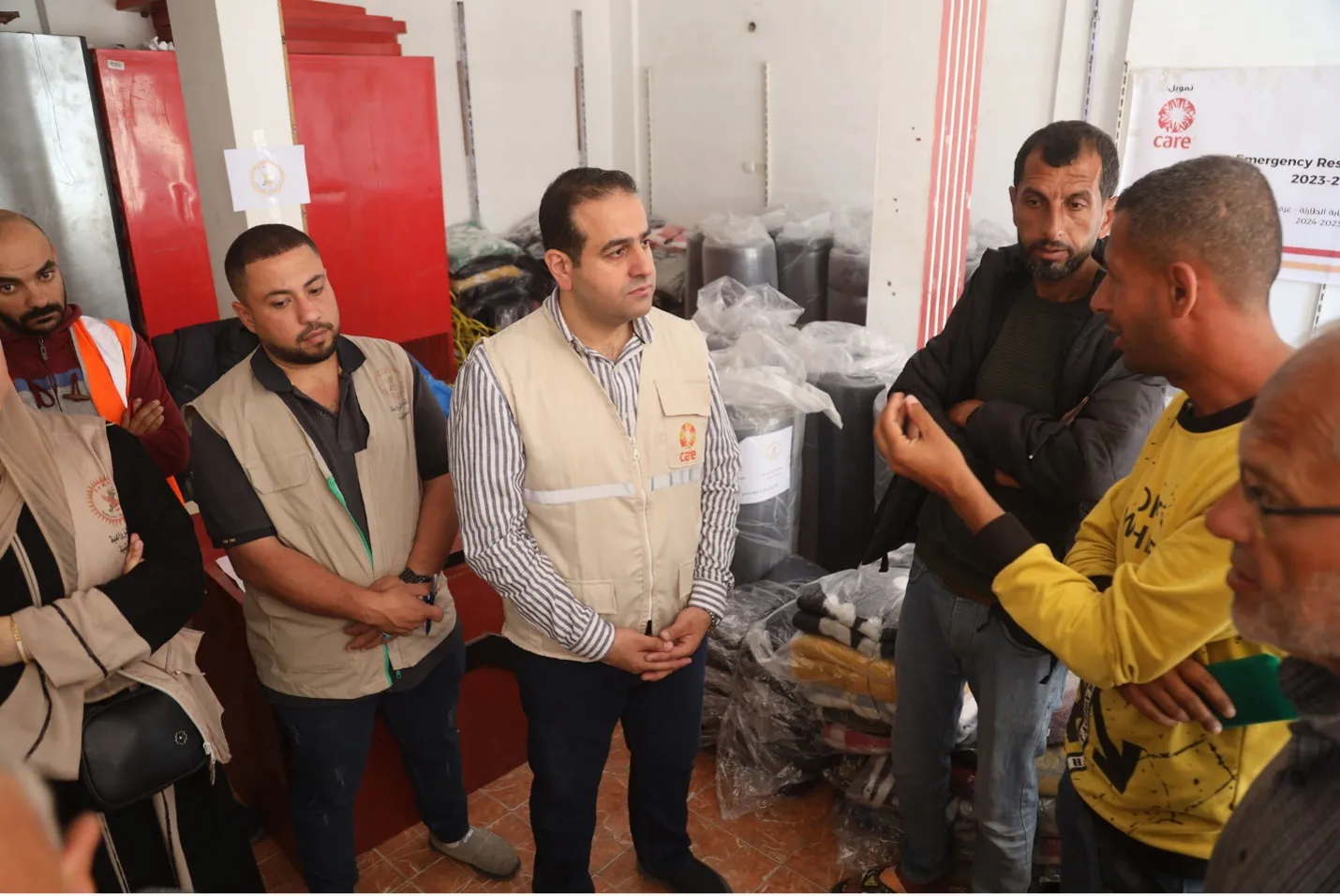As an aid worker, traveling anywhere in Gaza is a huge risk. Just a few weeks ago, our colleagues at World Central Kitchen were killed, as were over 200 aid workers since October. Every day, I consult with our security team at CARE, and we come up with ways we can minimize some of the risks.
But I know that as long as this war continues and bombs and missiles keep being dropped, nowhere in Gaza is safe. Managing CARE’s relief efforts requires constantly shifting our plans, being flexible and creative. We have been without electricity since the conflict began, which makes phone calls and texting very difficult. The difficulty of withdrawing cash or making simple bank transactions, as well as the lack of fuel, are also constant hurdles we must overcome. Our local partner organizations are working around the clock, and I collaborate with them every day to ensure we can adapt our approach to whatever the current situation on the ground is.
Despite all of these challenges, we have managed to help over 350,000 people so far. I am proud of what our team has been able to achieve, but I can also see how all of this is taking a huge mental toll on all of us. Every day we speak to people who mourn their loved ones, mothers who worry their children won’t survive the next night because of illness, and children who have stopped speaking because what they have endured has left them withdrawn and shattered. At the same time, we aid workers are also deeply affected by this war. We struggle to feed our own children, we search for medication when they get sick, and we live in a constant cycle of fear and uncertainty, where every second our world could unravel deeper into sadness and loss.

